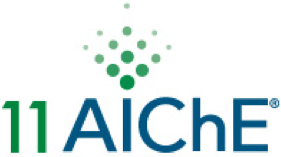

Pyrolysis Vapors Upgrading using Metal Oxides
Ayman M. Karim1, Donghai Mei1, Vanessa Lebarbier1, Changjun Liu1,2 and Yong Wang1,2
1Pacific Northwest National Laboratory
2Washington State University
The vapors generated during fast pyrolysis of biomass contain a significant fraction of light oxygenates (acetic acid, hydroxyacetaldehyde, hydroxyacetone,..) which are produced through undesired fragmentation reactions during pyrolysis. Hydrodeoxygenation of the light oxygenates would result in light alkanes which are not useful for transportation fuels. Therefore. the light compounds need to be converted to larger molecules before the hydrodeoxygenation/hydrotreating of the pyrolysis vapors (or bio-oil).
In this contribution, deoxygenation strategies for the upgrading of light oxygenates using metal oxides will be presented. The work combines experimental and density functional theory (DFT) calculations to identify metal oxide(s) for the
1- Upgrading of light oxygenates (building up) to fuel range compounds (C5+)
2- Deoxygenation of biomass depolymerization products (C5+ molecules)
We will show that ketonization and condensation on CeO2 based mixed oxides is an effective way of re-building the light oxygenates into fuel range molecules. CeO2 based mixed oxides show a 90+% selectivity to acetone during the ketonization of acetic acid. The ketonization reaction pathway on CeO2 was investigated using density functional theory calculations and the role of the second metal on selectivity and tolerance to H2O and CO2 will be presented.
The deoxygenation of the pyrolysis vapors using partially reduced metal oxides will also be presented. We show that oxygen vacancies on MoO3 (010) can selectively cleave the C-O bond over C-C bonds. Finally we will discuss the strategies and challenges to combine both approaches in a single upgrading step.
Presenter(s)
Language
Pricing
Individuals
| AIChE Member Credits | 0.5 |
| AIChE Pro Members | $15.00 |
| Fuels and Petrochemicals Division Members | Free |
| AIChE Graduate Student Members | Free |
| AIChE Undergraduate Student Members | Free |
| AIChE Explorer Members | $25.00 |
| Non-Members | $25.00 |
